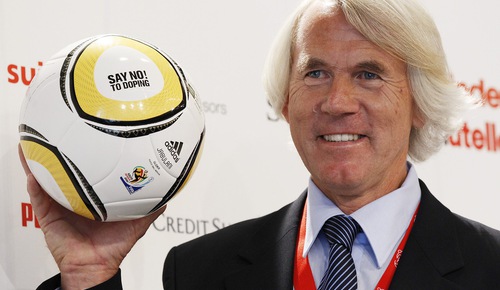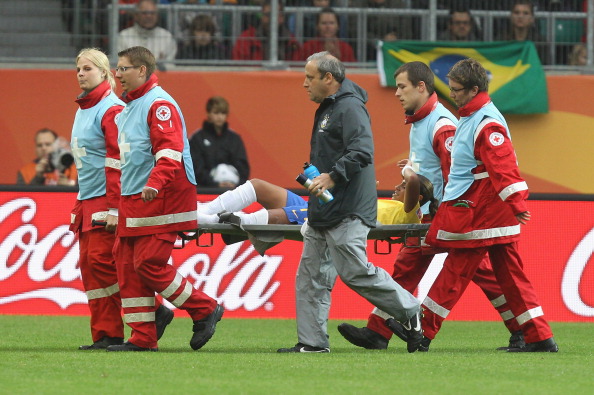By Andrew Warshaw
November 25 – Too many footballers are risking their long-term careers by having painkilling injections before matches, FIFA’s medical chief warned today.
Jirí Dvorák, FIFA’s chief medical officer, says players going out on the field pumped with anti-inflammatory drugs to get them through the pain barrier is an increasingly worrying problem that is the responsibility of team doctors.
“Our data shows that one third of the players at the last World Cup finals regularly took non-steroidal drugs which from our point of view was too much,” Dvorák said in an interview.
“There is no scientific justification for taking that amount of intake.
“The final person responsible is the team physician.”
Dvorák estimates that the same number of players are probably doing the same thing at club level on a regular basis.
“We don’t have data from the various leagues but most probably this is the case,” he said.
“Even more alarming is the fact that this seems to be happening at under 17 and under 20 level too, where the figure is around 15-20 per cent.
“That’s far too high considering their age.”
He insists the win-at-all-costs mentality should not take priority over health issues.
“They might well be covering up pain but in the long run it could be counter-productive in terms of the healing process,” Dvorák said.
“That’s what we are questioning.
“Everyone has to take responsibility.
“I don’t want to mention the teams involved but we also have examples of steroid injections into the actual joints to cover up injuries.
“This has to be very carefully reconsidered.
“We understand the pressures on teams and players,” he added.
“Players don’t want to be on the bench.
“But we have to be much more careful and much more cautious.”

Dvorák was speaking after attending the Sport, Exercise and Medicine Conference in London where he outlined FIFA’s much-prized injury prevention programme which, it is claimed, can reduce serious injury by between 30 and 50 per cent.
Turning to dope-testing, he said FIFA was all in favour of out-of-competition tests but not when it came to footballers in their spare time.
“There is a difference between team sports and individuals,” he said.
“We are in favour of out-of-competition testing but football players are there 49 weeks a year so in effect we have them available for 90 per cent of the year.
“We don’t see a reason to test a player at home when we can test him two hours later at the training ground.”
Contact the writer of this story at zib.l1745072038labto1745072038ofdlr1745072038owedi1745072038sni@w1745072038ahsra1745072038w.wer1745072038dna1745072038

